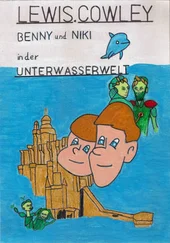What’s Your Motivation?
Let me ask you something: When you first tried to take on a language you were interested in, did you think something like, If I learn this language then I’ll get this benefit – some benefit that had nothing to do with intrinsically communicating in that language or getting to know a foreign country’s culture or particular people?
‘Benefits’, like career advancement, impressing people, prestige, passing an exam, crossing something off your bucket list, or other similar reasons, are examples of tangential motivations that have nothing to do with using the language itself.
For so many language learners, that motivation to learn a language is more often than not extrinsic rather than intrinsic. They have no true passion for the language; their only motivation is almost entirely for the side benefits they’d theoretically get from speaking a new language. Recognizing the bridges to people that language-learning opens up as opposed to benefits you may receive someday, is a key ingredient to making language-learning faster, more fun, and more efficient.
The Missing Ingredient: Passion
In this book, I focus on independent learners, rather than those sitting in classrooms. Even if you are taking a classroom course, whether it is taught efficiently or not, you need to be an efficient learner in your free time. When you love learning a language enough to have it fill your free time, then your passion can truly blossom. You can find many new motivations beyond extrinsic ones.
This is not to say that these factors automatically lead to failure; success in your career, for instance, can be a very effective motivating factor. The catch, however, is that these side benefits can’t be the main motivators for you to learn a language if you want to learn the language better. You must intrinsically want to speak that language for the language or culture itself.
When I eventually rebooted my attempts to learn Spanish, I put aside these superficial reasons – that someday Spanish might make me impressive or perhaps even more employable. Instead, I started to learn Spanish specifically to use Spanish with other human beings. This made all the difference. I genuinely wanted to communicate in Spanish and make friends through their native tongue. I also wanted to get to know Spain beyond the superficial experience I had had until then.
I was no longer motivated by benefits I might get months or years in the future, or by the idea that speaking Spanish would ‘make me cool’; I was genuinely passionate about learning the language in order to communicate directly with and understand other people through reading, watching, and listening to Spanish.
So take a moment to ask yourself what your motivation for learning a new language is. Are you learning a language for the ‘wrong’ reasons? Even if you indeed need the benefits that result from learning a language, like advancing your career, can you mentally put aside the long-term benefits and embrace learning the language for the inherent beauty of it and the many doors it will open for you? If you change your thinking in this way, all the side benefits will come, but they will come much faster, because your new focus will make learning a language happen more quickly and efficiently.
The missing ingredient, and the single thing I have found that separates successful language learners from unsuccessful ones, is a passion for the language itself. For successful language learners, acquiring a new language is the reward.
Give Yourself Goose Bumps
So how do you develop this passion, if extrinsic benefits have been clouding your vision?
For a start, seek out films and art and history from the country where your target language is spoken, listen to music in that language, read books and magazines, find as many sources of audio, video, and text online as you can, and absolutely spend time with native speakers – which you’ll notice I’ve dedicated an entire chapter to, without requiring that you travel to their countries.
Even when I know I am going to a country and have my flight booked, or even when I’m in the country itself, I can get lazy and make very slow progress unless I make that language a true part of my life. Doing so lets me grow passionate for the language.
Here’s a good time to tell you about my friend Khatzumoto. After speaking and reading Japanese exclusively for just eighteen months, he could read technical materials and conduct business correspondence and job interviews, all in Japanese. He ultimately landed a job in Japan as a software engineer at a gigantic corporation based in Tokyo.
The amazing thing is that Khatzumoto reached this stage by living his life in Japanese… while in Utah! He filled his world with Japanese virtually . He watched anime, read manga, consumed his favourite sci-fi series dubbed in Japanese, and surrounded himself with everything Japanese during every spare moment of his day, even though he was a full-time computer science student. By integrating his target language into his day-to-day living, he gave himself no escape route; he had no choice but to live most of his days in Japanese. As a result, his passion for the language grew. Today, his motto for learning Japanese, or for learning any language, remains ‘You don’t know a language, you live it. You don’t learn a language, you get used to it.’
Nothing creates passion for a language more than using it. Similarly, nothing I say about why you should learn a new language will be more convincing than the first time you understand your first sentence, or the first time you make yourself understood, in a different language. These moments will give you goose bumps, and the immense feeling of satisfaction that comes with them will stay with you forever, as well as thousands of other positive experiences that will follow.
The passion ingredient is what makes learning languages worthwhile; you simply have to live that language in whatever way you can to have your passion sparked. Spend time with natives of the language, listen to streamed radio, watch TV shows and films, or read books in the language, and you will spark your passion, which will motivate much more progress than any side benefit could ever hope to inspire.
How Far Are You Willing to Go?
Moses McCormick is a well-known polyglot who often posts online videos in languages that he’s learning. He can communicate, in varying degrees – from knowing a few phrases to being able to converse very well – in about fifty languages. When he was trying to improve his Hmong, an Asian language rarely known to Westerners, he told me the one place where he could consistently practise with native speakers was in online chatrooms. That’s all well and good, but one major obstacle, he said, was that most chatrooms were often filled with men interested only in meeting girls. They weren’t interested in continuing a conversation with another guy.
So what did Moses do? He created another screen name and logged in as a woman (a virtual sex change operation, if you will, only taking just an instant and totally reversible). Even when he said he was married, he still found that people were much more eager to chat.
Would you go to such lengths to get some practice time in your target language? If not, then maybe you aren’t passionate enough to get the results!
I’m obviously not saying that logging into a chatroom as another gender is a prerequisite for speaking another language, but going to such lengths and being willing to do whatever it takes, no matter what the level of embarrassment, will greatly improve your chances of being successful.
The Right Mentality Will Launch You Forward
Читать дальше












